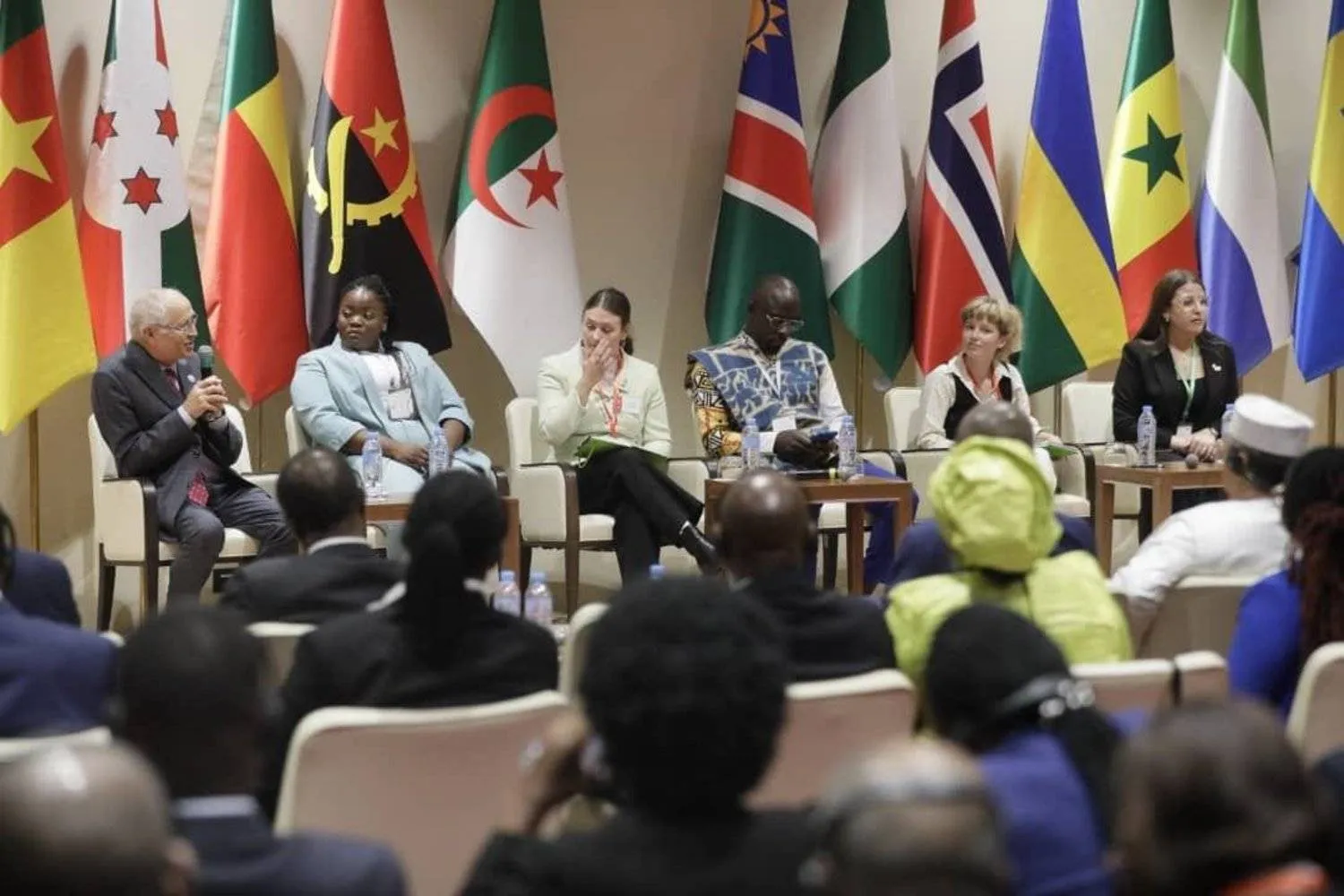The African-Nordic ministerial meeting agreed to transform challenges into cooperation and partnership opportunities to address conflicts and terrorist threats, especially in the Sahel-Saharan region.
Algerian Foreign Minister Ahmed Attaf delivered a speech at the conclusion of the 20th session of the African-Nordic Foreign Ministers' Meeting in Algiers, stating that the three-day consultations agreed to boost the cooperation between African and Nordic countries and coordinate to address various political and security challenges.
Attaf noted that the talks also called for increased efforts to revitalize and boost the role of multilateral diplomacy under the umbrella of the United Nations.
The consultations shed light on the unprecedented global and regional challenges amid international relations characterized by turmoil and polarization.
The talks highlighted the importance of employing the enormous youth energy in Africa to serve the shared goals and aspirations for peace, security, and sustainable development.
The participants stressed that African-Nordic cooperation continues to grow within the broader framework of the North-South partnership, according to Attaf.
He pointed out that there are efforts to establish a free trade area on the African continent.
The Algerian diplomat further explained that African-Nordic cooperation should not be limited to the annual meeting, stressing that those distinguished ties must extend their constructive and positive impact to international forums, especially at the UN.
Attaf gave a presentation about Algeria's efforts to ensure calm and encourage the activation of peaceful solutions to the crises in Niger and Mali.
He also called for mobilizing efforts to organize an international conference on development in the Sahel.
Algeria will join the UN Security Council in early 2024 as a non-permanent member, said Attaf, pledging to coordinate efforts towards advancing peace and security and boost collective support for just causes based on principles and values that serve all of humanity.
Attaf strongly criticized "double standards" in dealing with even the most heinous crimes, referring to the “massacre” against Gaza’s people amid a “terrible” international silence.
He warned that turning "a blind eye" to the “genocide” in Gaza is unacceptable and threatens the region's security.
Experts on development issues, combating extremism, terrorism, and irregular migration from 30 African countries and the five northern European countries, namely Sweden, Denmark, Norway, Finland, and Iceland, participated in the meeting.
The 19th session of the African-Nordic foreign ministers meeting was held in Finland in 2022 with the participation of only four Nordic and seven African ministers.
Denmark assumed the presidency of the 21st session at the Algeria meeting and will organize the next session there.









